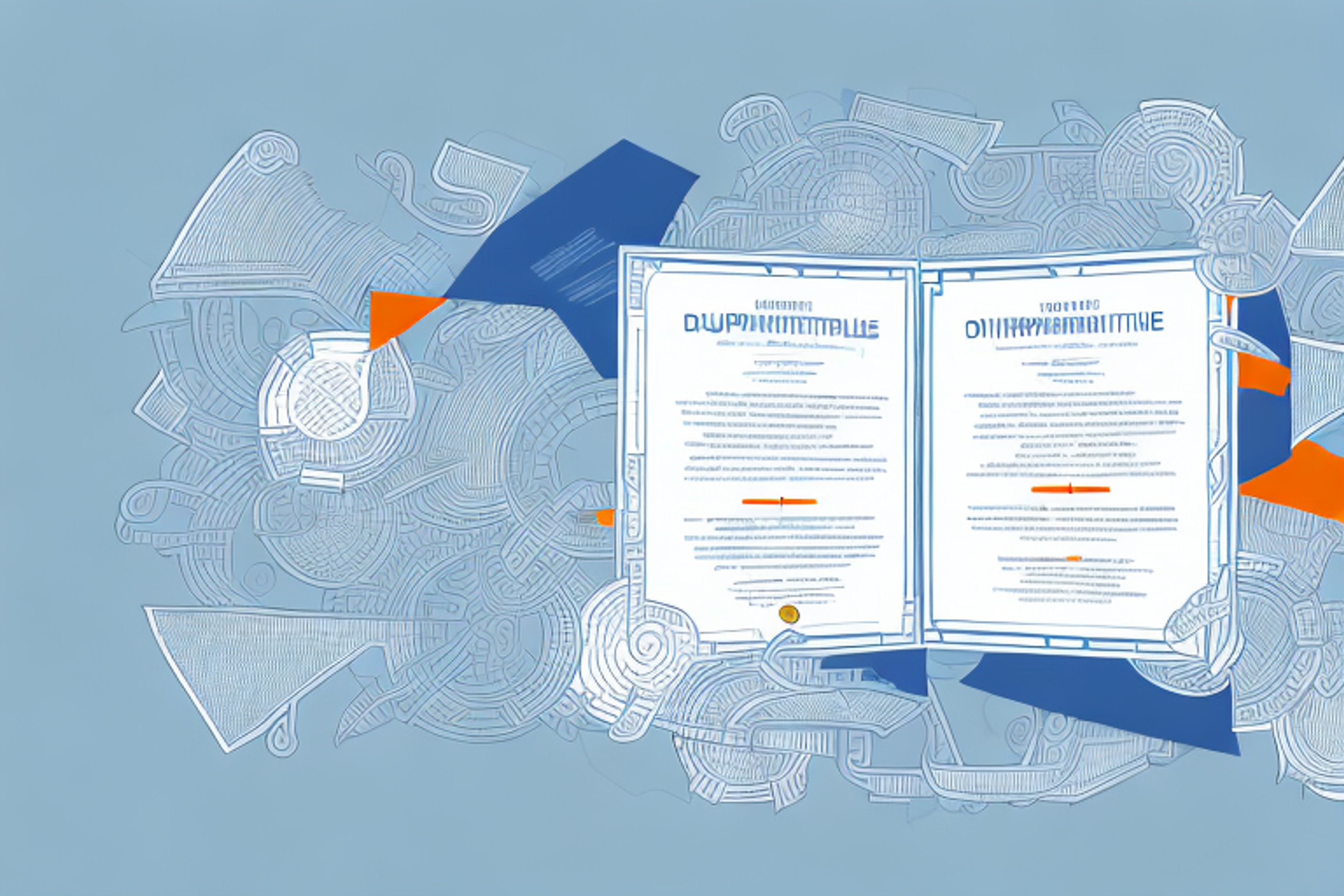Everything You Need to Know About Dual Degree JD Programs
Are you considering pursuing a dual degree JD program? This comprehensive article covers everything you need to know, from the benefits of a dual degree to the application process and potential career paths.
Posted June 13, 2025

Join a free event
Learn from top coaches and industry experts in live, interactive sessions you can join for free.
Table of Contents
Are you considering pursuing a law degree but also have a passion for another field? If so, a dual degree JD program may be the perfect fit for you. In this article, we will explore everything you need to know about dual degree JD programs, including what they are, the benefits of pursuing one, the types of programs available, top law schools offering dual degree programs, tips for managing coursework, financial aid options, career opportunities after graduation, and alumni perspectives on the program. By the end of this article, you will have a thorough understanding of whether a dual degree JD program is the right path for you.
What Are Dual Degree JD Programs?
Dual degree JD programs are programs that allow students to simultaneously earn a Juris Doctor degree, or a law degree, and another degree in a different field. These programs typically take between three to four years to complete, with some programs taking up to five years. The most common combination is a law degree and a master's degree in business administration or public policy.
However, dual degree JD programs are not limited to just business or public policy. Some universities offer dual degree programs in law and medicine, law and engineering, or law and environmental studies. These programs provide students with a unique opportunity to gain expertise in two different fields, which can be beneficial for those interested in pursuing careers in specialized areas such as healthcare law or intellectual property law.
The Benefits of Pursuing a Dual Degree JD Program
One of the main benefits of pursuing a dual degree JD program is the opportunity to gain specialized knowledge that sets you apart in the job market. For example, if you earn a JD and an MBA, you may be more attractive to law firms that specialize in corporate law. Another benefit is the ability to tailor your education to your career goals. If you have a passion for environmental law, you may choose to earn a JD and a master's degree in environmental science or policy. Dual degree programs also allow for networking opportunities with individuals in both fields, expanding your professional network and career prospects.
Additionally, pursuing a dual degree JD program can also provide a more well-rounded education. By studying two different fields, you can gain a broader perspective and develop a diverse set of skills that can be applied to various industries. This can make you a more versatile and valuable asset to potential employers.
Furthermore, dual degree programs often offer cost savings and time efficiency. Instead of pursuing two separate degrees, a dual degree program allows you to complete both degrees in a shorter amount of time and at a lower cost. This can be especially beneficial for students who are interested in pursuing higher education but are concerned about the financial burden.
Different Types of Dual Degree JD Programs
There are several types of dual degree JD programs available, including those that combine a law degree with a master's degree, a PhD, or a medical or dental degree. Some law schools also offer joint degree programs with other schools within the same university, such as a law degree and a degree in engineering or computer science. It is important to research and find the program that aligns with your career goals and interests.
Another type of dual degree JD program is one that combines a law degree with a business degree, such as an MBA. This type of program is ideal for students who are interested in pursuing a career in corporate law or business law. The combination of legal and business knowledge can be a valuable asset in the job market. Additionally, some law schools offer joint degree programs with schools outside of the university, such as a law degree and a degree in public policy or international relations. These programs can provide students with a unique perspective and skill set that can be applied to a variety of legal fields.
Top Law Schools That Offer Dual Degree Programs
Some of the top law schools in the United States that offer dual degree programs include Harvard Law School, Stanford Law School, Yale Law School, and the University of Pennsylvania Law School. However, many other law schools across the country also offer dual degree programs. It is important to research and find the program that aligns with your needs and goals.
When considering a dual degree program, it is important to weigh the benefits and drawbacks. While a dual degree can provide a unique skill set and make you more marketable to employers, it also requires a significant time and financial commitment. Additionally, some dual degree programs may have limited course offerings or require a longer time to complete both degrees. It is important to carefully consider your priorities and goals before committing to a dual degree program.
How to Apply for a Dual Degree JD Program
The application process for dual degree JD programs varies by school. Typically, applicants must apply separately to both programs and meet the respective admission requirements for each program. Some schools require applicants to apply to one program first and then apply to the other program in the following year. It is essential to research the application requirements and deadlines for each program you are applying to.
Additionally, some dual degree JD programs may require applicants to submit additional materials, such as a personal statement or resume, that specifically address their interest in pursuing both degrees. It is important to carefully review the application instructions and ensure that all required materials are submitted on time. Furthermore, it may be beneficial to reach out to current students or alumni of the dual degree program to gain insight into their experiences and any tips they may have for the application process.
Financial Aid Options for Dual Degree JD Programs
Attending a dual degree JD program can be costly, but many law schools offer financial aid options to help offset the cost. This can include scholarships, grants, and loans. Additionally, students may be eligible for federal financial aid and private loans. It is important to speak with the financial aid office at your school to learn about the options that are available to you.
Some law schools also offer work-study programs, where students can work part-time on campus to earn money to pay for their education. These programs can provide valuable work experience and help students build their resumes while also earning money to pay for their education.
It is important to note that financial aid options can vary greatly between law schools, so it is important to research and compare the options available at different schools before making a decision. Additionally, it is important to carefully consider the terms and conditions of any loans or scholarships before accepting them, as they may have different repayment requirements and interest rates.
Balancing Coursework: Tips for Managing a Dual Degree Program
One of the biggest challenges of pursuing a dual degree JD program is managing the rigorous coursework of both programs simultaneously. Time management and organization are key. It is also important to communicate with professors and advisors in both programs to ensure you are meeting all requirements. Prioritization and self-care are also essential to avoid burnout.
Another important aspect of managing a dual degree program is to find a balance between the two programs. It can be easy to get caught up in one program and neglect the other, but it is important to give equal attention to both. This can be achieved by creating a schedule that allows for dedicated time for each program.
Additionally, seeking support from peers who are also pursuing a dual degree program can be helpful. They can provide valuable insights and advice on how to manage the workload and balance the demands of both programs. Joining student organizations or study groups can be a great way to connect with other students in similar situations.
Career Opportunities After Completing a Dual Degree JD Program
Career opportunities after completing a dual degree JD program are vast and varied. Graduates may choose to work in traditional legal roles such as law firms or government agencies. However, the combination of a law degree with another specialized degree can open up opportunities in a variety of fields, such as healthcare, finance, and environmental advocacy. Graduates may also choose to continue their education and pursue a PhD in their specialized field.
One potential career path for graduates of a dual degree JD program is in the field of intellectual property law. With a background in both law and a specialized field such as engineering or computer science, graduates can work with clients to protect their intellectual property rights and navigate complex legal issues related to patents, trademarks, and copyrights.
Another option for graduates is to work in the field of international law. With a dual degree in law and a foreign language or international studies, graduates can work for multinational corporations, international organizations, or government agencies to navigate complex legal issues that arise in a global context.
Success Stories: Alumni Perspectives on Dual Degree JD Programs
Alumni of dual degree JD programs report feeling more prepared and well-rounded in their careers. They often credit their success and unique career paths to the specialized knowledge and networking opportunities provided by the program. Many alumni also report feeling more equipped to handle complex legal issues because of their additional education and training.
Furthermore, alumni of dual degree JD programs have reported increased job opportunities and higher salaries compared to their peers with only a JD degree. This is due to the added value of their second degree, which allows them to bring a unique perspective and skill set to their work. Additionally, alumni have reported a greater understanding and appreciation for other fields, such as business or public policy, which has allowed them to collaborate more effectively with professionals in those areas.
Challenges Faced During a Dual Degree JD Program and How to Overcome Them
The rigorous and demanding coursework of a dual degree JD program can be overwhelming. One of the biggest challenges is managing time and balancing coursework between both programs. Effective time management and prioritization can help overcome this challenge. Another challenge is ensuring that you are meeting the requirements for both programs and communicating effectively with both sets of professors and advisors. Seeking support from peers, advisors, and mentors is important to overcoming these challenges.
Is a Dual Degree JD Program Right for You?
Deciding if a dual degree JD program is right for you depends on your career goals and interests. If you have a passion for both law and another field, a dual degree program may be the perfect fit. It is important to research programs, speak with advisors and alumni, and consider the challenges and benefits before making a decision. With careful planning and dedication, a dual degree JD program can be a highly rewarding and fulfilling experience.
Browse hundreds of expert coaches
Leland coaches have helped thousands of people achieve their goals. A dedicated mentor can make all the difference.


















